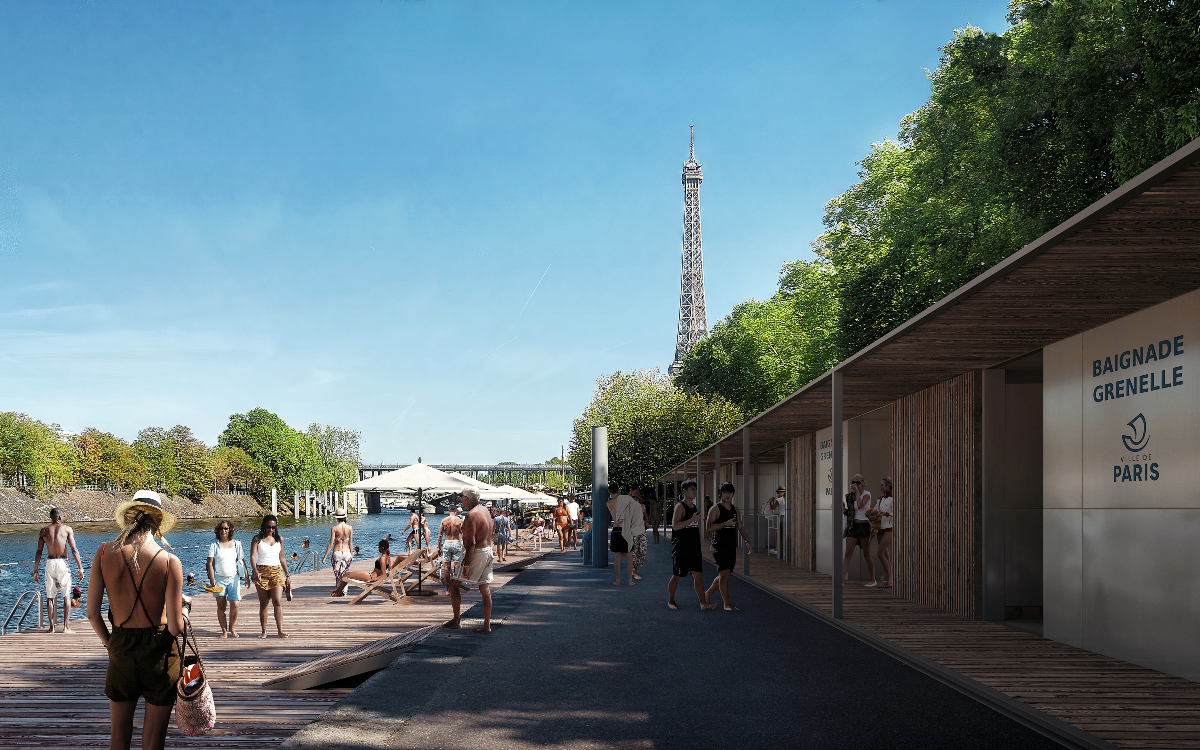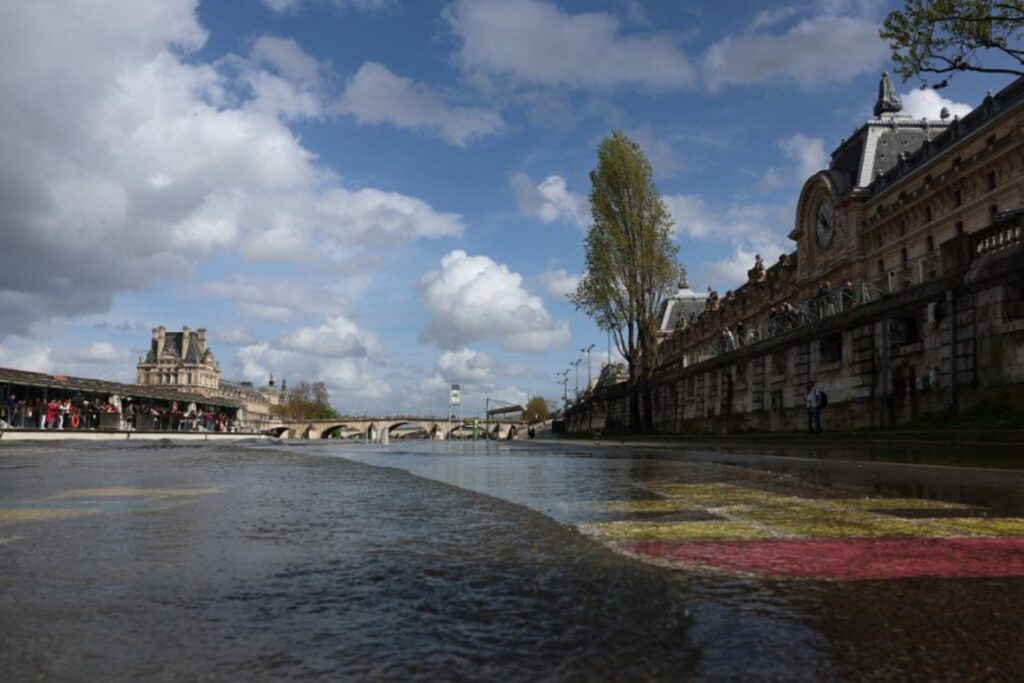With around 100 days until the Paris Olympics, a warning has been issued about the state of the water in the polluted River Seine, hampering the chances of swimmers competing in the open waters during the major sporting event.
The French authorities announced a massive clean-up of Paris' Seine, costing €1.5 billion, to ensure several Olympic events can be held in open waters. In March last year, French President Emmanuel Macron assured that the clean-up was "on the verge of succeeding" even though the city's Deputy Mayor admitted that it was not guaranteed this would be done in time.
The plan was that this would be followed by the opening of swimming sites in the river from 2025, bringing an end to a century-long swim ban. However, the non-profit Surfrider Foundation issued a stark warning on Monday about the "alarming" state of the river's waters, following a six-month study to analyse the water.
The results highlight that the Seine is still not suitable for swimming, with just 108 days to go before the Games begin.
Well above recommended thresholds
The organisation's volunteers have been taking samples from the Seine at Pont de l'Alma and Pont Alexandre III — venues for the upcoming triathlon and open water swimming events — since September 2023. From 14 tests carried out between then and late March 2024, 13 results were found to be "above, and in some cases well above" the recommended thresholds for swimming.
The tests conducted by Surfrider, in collaboration with Paris Water Laboratory and Analy-Co, showed E. coli concentrations regularly exceeding 2,000 colony-forming units (cfu)/100 ml (maxing at 7,250 under Pont de l'Alma on 7 February 2024) and 500 cfu/100 ml for Enterococci (peaking at 1,190 on 7 February). Both bacteria indicate faecal contamination.

Image depicting the design for a bathing spot near the Eiffel Tower to be opened after the Olympics. Credit: Ville de Paris
The International Swimming Federation standards for permissible levels of E. coli and Enterococci state these shouldn't exceed 1,000 cfu/100 ml for E.coli and 400 cfu/100 ml for Enterococci. Anything beyond this indicates the water is unsuitable for swimming.
"We are two to three times above the minimum standards required for athletes to be able to compete safely during the season," Marc Valmassoni, Campaign Coordinator for the Foundation, told France Inter. This bacteriological presence has potentially serious consequences for athletes, exposing them to pathologies such as gastro-enteritis, conjunctivitis, otitis and skin problems.
The period analysed doesn't align with the proposed summer months for Seine swimming, and water quality thresholds deteriorate particularly after heavy rainfall which was common during the analysed months. However, additional analyses shared with AFP by the Paris City Council had already shown that from June to September 2023, none of the 14 Paris water collection points reached a quality level correlating to standards.
There is "no plan B" for these open-water swimming events if the water remains polluted. Paris City Council is counting on the new retention basin, close to the Gare d'Austerlitz, to store rainwater, but this may not be enough in the case of very heavy rain. In the meantime, the Foundation wants to continue taking samples to check the quality of the water in complete transparency.

